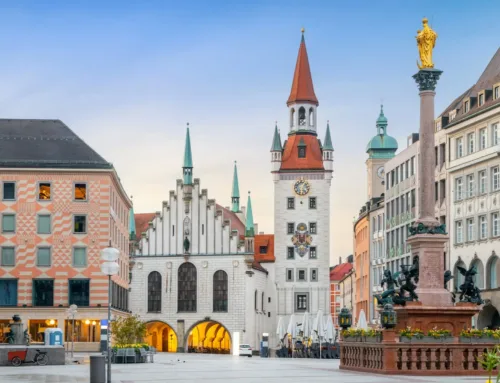Marriage in Germany: Legal Requirements and Process
Marriage in Germany might be straightforward, although it necessitates compliance with particular legal stipulations and the submission of various documents. This guide delineates the legal procedures and prerequisites for marriage in Germany, applicable to German citizens, expatriates, and those contemplating a destination wedding.
-
Legal Prerequisites for Matrimony in Germany:
In order to marry in Germany, both parties must fulfill the essential requirements:
- Minimum age requirement: Both parties must be a minimum of 18 years of age. Exceptions for individuals aged 16 or 17 may be attainable with judicial consent, albeit such instances are infrequent.
- Marital status: Both partners must be legally unmarried, indicating they are not presently wed. If previously married, you must submit evidence of divorce or widowhood.
- Legal capacity: Both partners must possess the legal ability to marry (i.e., be mentally competent).
-
Necessary Documentation:
Prior to marriage in Germany, it is necessary to present various documents to the Standesamt (civil registry office):
- Passports or valid national identity for both parties.
- Birth certificates must be formally translated if they are not in German.
- Proof of residence (Meldebescheinigung) indicating that at least one partner has resided in Germany for a minimum of 21 days.
- Certificate of freedom to marriage (Ehefähigkeitszeugnis), issued by your nation of origin, demonstrating your legal capacity to marry. Certain countries do not issue this document, necessitating potential legal consultation.
- Divorce or death certificates if either partner has been previously married. Foreign documents may require translation and legal recognition (apostille or legalization).
-
Matrimonial Procedure:
Below is a sequential outline of the marriage procedure in Germany:
-
Marriage Registration (Anmeldung zur Eheschließung):
It is necessary to register your intention to marry at the local Standesamt. This is generally conducted at the office located in the city where one party resides. Both spouses are required to attend the appointment, and the necessary paperwork must be supplied. You will be queried regarding your personal details, marital status, and background. The civil registry office will subsequently authenticate the papers and establish a wedding date.
-
Civil Ceremony:
In Germany, the civil ceremony constitutes the sole legally recognized form of marriage. Religious rites may occur just subsequent to the civil marriage. Civil ceremonies are generally conducted in the Standesamt and presided over by a registrar. The ceremony is uncomplicated and endures approximately 30 minutes. Couples may bring witnesses, however the law no longer mandates their presence.
-
Discretionary Religious Ceremony:
Subsequent to the civil marriage, couples may opt for a religious or symbolic ceremony. This is optional and lacks legal significance, however it is customary for individuals seeking a more tailored wedding experience.
-
Global Couples and Expatriates:
International couples and expatriates residing in Germany encounter a comparable process, although with the potential requirement for supplementary papers.
- All foreign documents must be formally translated into German by a certified translator.
- Authentication of Foreign Documents: Numerous nations mandate that foreign documents, including birth certificates and divorce decrees, undergo an apostille or legalization procedure for validation.
- Special paperwork: Certain expatriates may require specific licenses or documentation from their embassies, such as the Ehefähigkeitszeugnis (certificate of freedom to marry).
-
Homosexual Marriage:
Same-sex marriage has been entirely legal in Germany since 2017. Same-sex couples undergo the identical legal procedures as heterosexual couples for both civil and religious ceremonies.
-
Expenses Associated with Marriage:
The expenses associated with marriage in Germany are contingent upon various circumstances.
- The registration charge varies from €50 to €100, contingent upon the city and the necessity for translations or specialized paperwork.
- Civil ceremony fee: Generally between €100 and €200, particularly for weekend or off-site venues.
- Supplementary charges may be incurred for translations, document authentication, or apostille services.
-
Legal Considerations Following Marriage
Upon the formalization of the marriage, you will obtain a marriage certificate (Eheurkunde) from the Standesamt. This document is applicable for name changes, residency permit applications, and modifications of legal status with many government entities, including tax authorities and social security offices.
For additional information on legal procedures, you may refer to the German Federal Ministry of Justice and Consumer Protection website.
Conclusion:
The marriage procedure in Germany, however uncomplicated, necessitates meticulous attention to documents, particularly for expatriates. By fulfilling the legal obligations and preparing the requisite documentation in advance, you can facilitate a seamless process. Germany offers a robust legal framework for marriage, whether you are organizing a modest civil ceremony or a more extravagant celebration.
For further insights on marriage-related legal matters in Germany, check out Chancenkarte.info for detailed resources and guidance.



